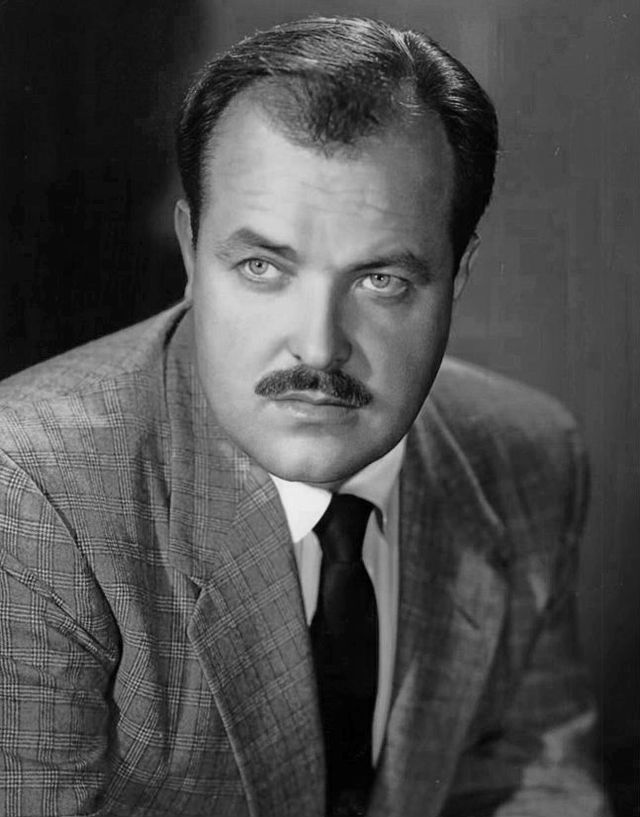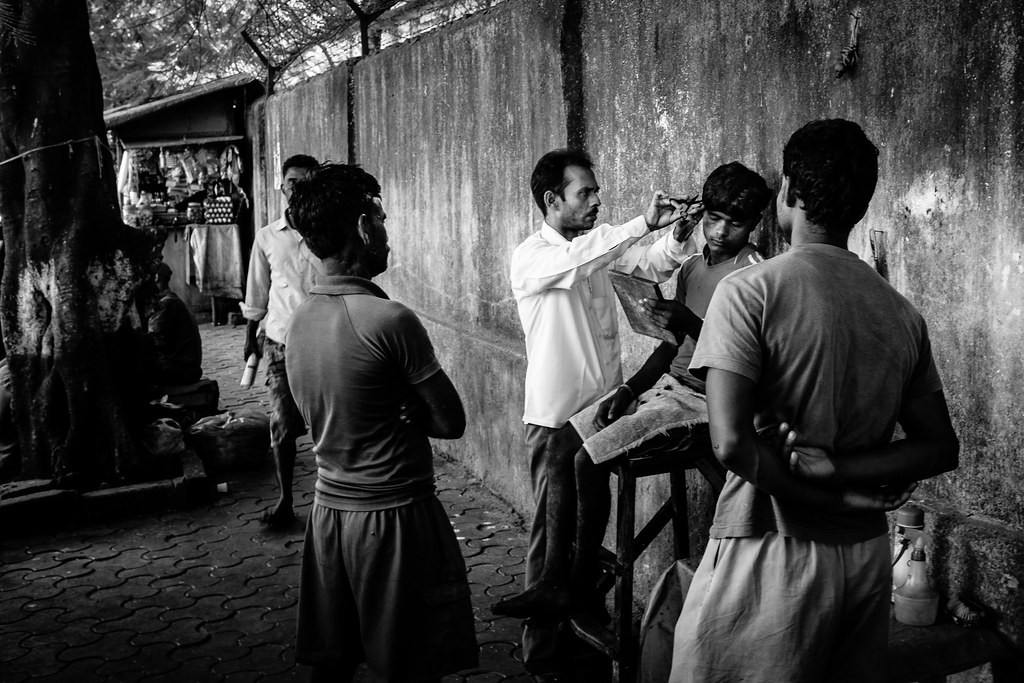
The idyllic, seemingly uncomplicated world of Mayberry, brought to life in ‘The Andy Griffith Show,’ remains etched in the collective memory of television viewers as a comforting tableau of small-town America. While Sheriff Andy Taylor and Deputy Barney Fife often commanded the spotlight, the show’s enduring charm and profound depth were undeniably bolstered by a constellation of vivid supporting characters. Among these, few left as indelible a mark as Floyd Lawson, the meticulously coiffed, often gossipy, and utterly beloved barber, portrayed with a masterful blend of warmth and eccentricity by the inimitable Howard McNear.
Yet, behind the familiar nervous chatter and the friendly, albeit sometimes absent-minded, demeanor of Mayberry’s resident tonsorial artist lay a story of an actor whose journey was far more complex and poignant than many viewers might have realized. McNear’s career was a testament to dedication and an innate comedic talent, cultivated over decades in radio, film, and television before his defining role. His life, a mosaic of triumphs and profound personal challenges, offers a compelling narrative of resilience in the face of adversity.
This article endeavors to delve into the rich tapestry of Howard McNear’s life and career, illuminating the often-unseen pathways that led him to Mayberry. We will trace his early aspirations, his distinctive comedic sensibilities, and the meticulous craft he applied to every role, ultimately revealing the profound impact he had on an iconic American television series and the indelible legacy he left behind, even amidst a personal tragedy that would test his spirit and resolve.

1. **His earliest roles were on the stage**Howard McNear’s artistic journey began not under the glaring lights of a television studio, but within the hallowed, often intimate, confines of the stage. From an early age, McNear gravitated towards the dramatic arts, seeking formal training under the tutelage of Patia Power, the esteemed mother of actor Tyrone Power. This foundational instruction prepared him for further immersion at the Oatman School of Theater, a crucial step in honing his craft and solidifying his aspirations as a performer.
Following his studies, McNear joined a theater stock company in San Diego, an invaluable experience for any burgeoning actor seeking to develop versatility and stage presence. This early dedication, however, was underscored by a deeply ingrained personal struggle. McNear confessed to the *Progress-Bulletin* that despite his mother’s support for his schooling, a profound shyness often paralyzed him, stating, “I was so shy I walked up and down in front of it for three days before I had the courage to go inside.” This revelation offers a glimpse into the remarkable courage it took for him to pursue a career that inherently demanded public exposure.
Such an anecdote is not merely a charming detail; it profoundly informs our understanding of McNear’s artistic development. It suggests that the stage, rather than being a source of anxiety, became a sanctuary, a place where the act of embodying another persona offered a unique liberation from his own inhibitions. This early wrestling with his introverted nature undoubtedly contributed to the nuanced, often understated, comedic characters he would later bring to life, infusing them with a subtle vulnerability that resonated deeply with audiences.
Read more about: Heath Ledger’s Enduring Legacy: Matilda, The Dark Knight, And A Talent Unmistakably Recognized

2. **Being shy was a real problem**McNear’s profound shyness was not merely a fleeting characteristic of his youth but a persistent element of his personality, one that he openly acknowledged as a defining trait. Speaking to the *Los Angeles Times*, he starkly admitted, “I was painfully shy.” This profound discomfort in social settings stood in stark contrast to the ease and authenticity he found once he stepped into the theatrical realm, noting, “I really feel at home only when I’m on stage. Meeting people is far harder for me than being behind the footlights; perhaps that’s because I can feel I’m someone else when I’m acting.”
This sentiment offers a crucial insight into the psychological landscape of a performer who could transform his personal struggles into artistic strengths. For McNear, acting was more than a profession; it was a potent form of escapism, a medium through which he could shed the burdens of his own self-consciousness and inhabit identities that allowed him greater freedom of expression. The stage provided a unique veil, enabling him to connect with an audience not as Howard McNear, but as a carefully constructed character, thus circumventing the social anxieties that otherwise plagued him.
The paradox of an intensely shy individual thriving in a public-facing career is a testament to the transformative power of art. It suggests that McNear’s meticulous attention to character development and his ability to imbue his roles with distinct mannerisms may have stemmed from a deep-seated need to fully commit to these alternate realities. This dedication, born from personal struggle, ultimately enriched his performances, making his comedic portrayals, including that of Floyd the Barber, resonate with an authentic, if sometimes nervous, humanity.
Read more about: Behind the Spotlight: 14 Stars We’ve Adored Who Committed Shameful Acts That Still Make Us Cringe

3. **In a way radio became his safe place**Given Howard McNear’s struggles with shyness, the medium of radio proved to be an exceptionally congenial environment for his talents to flourish. In the realm of audio performance, an actor’s voice and imaginative interpretation were paramount, while physical presence—a potential source of discomfort for McNear—was entirely removed from the equation. This allowed him to fully immerse himself in his characters, crafting vivid portrayals solely through vocal artistry.
His foray into radio began notably in 1937 with *The Cinnamon Bear*, a seasonal fantasy show where he lent his voice to the character of Samuel the Seal. This early role marked the beginning of a prolific career in voice acting. From 1938 to 1940, he featured prominently as Clint Barlow in the radio drama serial *Speed Gibson of the International Secret Police*, showcasing his capacity for sustained character development within a serialized narrative. He further honed his skills starring alongside esteemed actors like William Conrad and Parley Baer in an audio adaptation of *The Count of Monte Cristo*, demonstrating his versatility across diverse genres.
McNear’s burgeoning radio career, however, was briefly interrupted by the exigencies of national service; he put his performing arts on hold to serve in World War II with the U.S. Army Air Corps. Upon his return, he resumed his vocal performances with renewed vigor, contributing to a multitude of syndicated shows. These included culturally significant programs such as *The Cavalcade of America*, the thrilling *The Shadow of Fu Manchu*, and the prestigious *The Lux Radio Theatre*. Such extensive experience not only solidified his reputation as a reliable and gifted voice actor but also provided a rich training ground for the intricate character work that would later define his live-action roles.
Read more about: Behind the Spotlight: 14 Stars We’ve Adored Who Committed Shameful Acts That Still Make Us Cringe

4. **Voicing Doc on Gunsmoke**Before *Gunsmoke* became a legendary fixture of American television, captivating audiences for two decades, it first achieved widespread popularity as a radio series. Running from 1952 to 1961, this audio precursor was where Howard McNear truly cemented his legacy in the world of broadcasting. He delivered a seminal performance as Doc Charles Adams, a character who, though later portrayed by Milburn Stone on television, was initially brought to vivid life by McNear’s distinctive vocalizations and interpretive genius.
McNear’s portrayal of Doc Charles Adams was lauded for its unique blend of wit and a somewhat morbid charm. Radiospirits, reflecting on his contribution, commented that McNear “brought the character of ‘Doc’ to life from the very first episode as a man delighted by the thought of all of the money he stood to collect from the number of men Marshall Matt Dillon sent to Boot Hill.” This darkly humorous interpretation endeared him to both colleagues and listeners, showcasing his ability to find the comedic potential even in grim scenarios, a trait that would become a hallmark of his acting.
The profound impact of McNear’s performance was even noted by his co-star, William Conrad, who voiced Marshal Matt Dillon. Conrad was so captivated by “McNear’s wickedly ghoulish take on the character that he suggested Doc’s real name be ‘Dr. Charles Adams,’ a reference to macabre cartoonist Charles Addams,” the creator of *The Addams Family*. This playful tribute underscores the memorable and distinctive quality McNear brought to the role, demonstrating how his interpretation not only shaped the character but also left an enduring impression on those he worked with, highlighting his intrinsic talent for character creation and comedic delivery.
Read more about: Remembering the Stars: A Fond Farewell to the Beloved ‘Happy Days’ Actors We’ve Lost

5. **Welcome to the big screen!**Howard McNear’s distinctive comedic talents did not go unnoticed by the burgeoning film industry, and it was not long before he transitioned from the auditory world of radio to the visual spectacle of the silver screen. His cinematic career spanned from 1953 to 1966, during which he appeared in a remarkable 28 films. These roles allowed him to showcase his nuanced character acting to a broader audience, solidifying his versatility across different performance mediums. His filmography includes some highly recognizable titles, such as Lucille Ball and Desi Arnaz’s comedic travelogue *The Long, Long Trailer* (1953) and the early sci-fi adventure *Voyage to the Bottom of the Sea* (1960).
Notably, McNear also shared the screen with cultural icon Elvis Presley in no less than three films: *Blue Hawaii* (1961), *Follow That Dream* (1962), and *Fun in Acapulco* (1963). These appearances placed him squarely within the glamorous orbit of Hollywood’s biggest stars. A particularly charming anecdote from this period, recounted by Allan Newsome, a “Floyd the Barber Tribute Artist” and podcast host, illustrates McNear’s genuine impact on his co-stars. Newsome shared a story from McNear’s son, Kit, who recalled a phone call: “His son, Kit, said he was home by himself when the phone rings. He picked it up and the voice on the other line said, ‘Hello, this is Elvis Presley. I’d like to speak to Howard.’ Kit said, ‘Knock it off, Johnny,’ and hung up on him.”
Newsome continued, highlighting Elvis’s persistence: “Elvis had to call back twice. The reason he persisted is that he really liked Howard and just wanted to call and talk to him.” This personal outreach from a global superstar speaks volumes about Howard McNear’s amiable nature and the respect he garnered among his peers. It underscores that beyond his undeniable talent, McNear possessed a warmth and character that fostered genuine connections, making him not just a gifted actor but a truly cherished individual within the competitive world of Hollywood.
Read more about: You Won’t Believe These 14 Unscripted TV Moments Accidentally Made It to the Final Cut!

6. **No stranger to television**Before his iconic tenure as Floyd the Barber, Howard McNear was already a familiar face to television audiences, having established a robust presence on the small screen. His television debut occurred in a 1952 episode of *Four Star Playhouse*, marking the beginning of an extensive and varied career in this nascent medium. This initial appearance paved the way for an impressive array of over 90 guest spots on various shows prior to his pivotal arrival on *The Andy Griffith Show* in 1961, showcasing his adaptability and consistent demand as a character actor.
McNear’s television credits reveal a remarkable breadth of roles across different genres and formats. He graced the sets of beloved sitcoms, including *I Love Lucy*, where his precise comedic timing found a perfect home. He also appeared in *Gunsmoke*, where, distinct from his radio portrayal of Doc, he took on six different characters, demonstrating his capacity to inhabit diverse personas within the same series. His talents extended to family-friendly fare like *Leave It to Beaver* and the perennial favorite *Mister Ed*.
Furthermore, McNear’s range allowed him to contribute to highly respected productions such as *The Jack Benny Program*, where his unique mannerisms began to crystallize, and the suspenseful anthology *Alfred Hitchcock Presents*. This extensive resume of television work illustrates not just his consistent employment, but also the invaluable experience he accumulated in shaping distinct characters for the visual medium. Each guest spot was a masterclass in economy, requiring him to quickly establish a memorable personality, a skill that would prove indispensable in making Floyd the Barber a household name.
Read more about: Jack Jones: An In-Depth Look at the Enduring Legacy of the ‘Love Boat’ Crooner and Nightclub Hitmaker
7. **Howard McNear becomes Floyd the Barber**In 1961, Howard McNear stepped into the role that would define his legacy for generations of television viewers: Floyd Lawson, more affectionately known as “Floyd the Barber,” on *The Andy Griffith Show*. The series was already a resounding success, capturing the hearts of millions with its wholesome portrayal of small-town life. McNear’s arrival, however, infused Mayberry with a distinct flavor, and he found himself thrust into an unforeseen level of public recognition that had largely eluded him throughout his extensive career in radio and supporting film roles.
The sudden surge in popularity was, by his own admission, a surprising turn of events. He mused to the press, “After all these years, now people are beginning to recognize me in restaurants and on the street. My brother even gets mistaken for me and he’s quite flattered.” This candid reflection highlights the profound impact of *The Andy Griffith Show* in transforming him from a respected character actor into a widely recognized public figure, a transition that, while flattering, was also a new experience after decades of honing his craft largely out of the mainstream spotlight.
McNear’s humility and genuine appreciation for his newfound fame were also evident in his recollections of working with comedic legends. He recalled his initial apprehension during his first TV show with George Gobel, stating, “I was scared going out there in front of 30 million people, but he was very helpful.” A particularly touching anecdote involved Jack Benny, a titan of comedy, who took the time to personally acknowledge McNear’s talent: “And then there’s Jack Benny. He’s a big star, but he took the trouble to call my wife once and tell her how well he thought I did in one of his shows. My wife was in tears afterwards.” This heartfelt gesture from Benny speaks volumes about the respect McNear commanded among his peers and the quiet impact his performances had on those who truly understood the art of comedy.

8. **Floyd’s role on The Andy Griffith Show**As conceived by the creators, the character of Floyd Lawson was ingeniously crafted to serve as an anchor in the Mayberry community, representing a generational link that transcended mere character presence. Pop culture historian Geoffrey Mark, author of *The Lucy Book*, points out that Floyd was designed to be “a generation older than Andy Taylor, even remembering both Andy and Barney Fife growing up as kids.” This elder status imbued Floyd with a unique authority and perspective, allowing him to embody the collective memory and traditional values of the town, offering a subtle contrast to the often more contemporary dilemmas faced by Andy and Barney.
Beyond his age, Floyd functioned as a vital commentary mechanism within the show, almost akin to a “Greek chorus” that observed and reacted to the unfolding events of Mayberry. Mark explains, “He also gave another perspective as an elder of the town… Sometimes close-minded, sometimes jumping to conclusions, sometimes judgmental and sometimes giving them some wisdom. On top of that, he gave the show a needed voice. He wasn’t always involved in the high jinks, although sometimes he was. More often than not, he was almost like a Greek chorus, commenting on the high jinks.” This insightful portrayal allowed Floyd to provide both comedic relief and moments of profound, albeit folksy, wisdom, enriching the narrative texture of the series.
The barbershop itself, under Floyd’s proprietorship, became an indispensable setting, a veritable social hub for the men of Mayberry. It was more than just a place for haircuts; it was, as Mark aptly describes, “kind of the center of town for the men to gossip in.” This central role meant that “there were almost as many scenes in the barbershop as there were in Andy’s office. People just hung out there, so whenever anything happened to them, any storyline where something was going on, there was always a scene at Floyd’s where they discussed it.” Through Floyd and his barbershop, the show skillfully revealed the prevailing attitudes, foibles, and heartwarming camaraderie that were the very essence of Mayberry, making him an irreplaceable ingredient in the show’s enduring appeal.

9. **His skills as a comedian**Howard McNear’s portrayal of Floyd the Barber transcended mere dialogue delivery; it was a masterclass in comedic timing and subtle character development. Allan Newsome, a dedicated “Floyd the Barber Tribute Artist,” reflects on this genius, noting, “The more I portray him and study what he does on the show and how he behaves, the more impressed I am with the way he was able to take those sometimes minimal lines and make them so entertaining.” This insight underscores McNear’s profound ability to infuse even the simplest lines with a rich vein of humor and pathos.
His comedic prowess was so captivating that it drew even his fellow cast members to observe his craft. George Lindsey, who famously played Goober Pyle on the show, once told Newsome that he would often visit the set on his days off simply “just to watch Howard McNear work.” Lindsey described McNear as being “so much like the actual character he was playing, that it was a joy to watch,” a testament to the seamless fusion of actor and role that made Floyd so believable and beloved.
Beyond individual lines, McNear’s character was instrumental in establishing the very fabric of Mayberry life. Pop culture historian Geoffrey Mark, author of *The Lucy Book*, aptly observes, “Floyd the Barber really permeates Mayberry.” He explains that “a lot of the town’s attitudes get revealed through him, because that barbershop was kind of the center of town for the men to gossip in.” This central role meant that Floyd, through his observations and reactions, offered a profound lens through which the audience could understand the town’s prevailing sentiments.
Read more about: Unveiling the Formative Crucible: Isaacson’s Tell-All on Elon Musk’s Shaping Childhood and Early Ascensions

10. **Howard McNear’s view of Floyd the Barber**As his career matured, Howard McNear developed a pronounced preference for comedic roles over dramatic ones, a stance that sometimes created friction with his professional circle. His agent and even his wife, both concerned about his career trajectory, occasionally “thought he was crazy for turning down the work” that leaned towards serious themes. Yet, McNear remained resolute in his artistic choices, prioritizing the specialized bits that brought him genuine satisfaction and allowed his unique comedic style to flourish.
He once recounted turning down a particularly somber role, stating, “Just last week I turned down a serious thing, they wanted me for a judge who was committing a girl to a mental institution.” For McNear, such roles simply “didn’t think it was right for me. I prefer the specialized bits.” This deliberate choice highlights his deep understanding of his own strengths and the types of characters he could authentically bring to life, demonstrating a clarity of artistic vision often unseen in actors of his generation.
McNear candidly described the essence of his specialized characterizations, characterizing them as “a nervous wreck.” He understood that this particular comedic persona, while effective, “you can’t be on too much with it.” He cleverly adapted this persona to various contexts, even fitting it “into the part of an absent-minded lawyer in an episode of *The Jack Benny Program*.” Jack Benny himself, a titan of comedy, recognized McNear’s singular talent, proclaiming that he “thought I was a master of this peculiar thing and he couldn’t remember anyone doing a character like it.” This high praise from such a celebrated peer cemented McNear’s reputation as an inimitable comedic force.

11. **He attempted to dig deeper to understand Floyd the Barber**The unique comedic fingerprint Howard McNear left on his characters, especially Floyd the Barber, was the subject of considerable fascination among his contemporaries. In January 1960, renowned newspaper columnist Hedda Hopper dedicated a profile to McNear, noting that “When top comedians chew the fat about their craft, Howard McNear’s name is bound to come up.” She admired how he consistently brought “a unique type characterization to their shows which no one has succeeded in imitating.” Hopper particularly highlighted his “frustrated character, who leaves sentences hanging in the air at times while pantomime finishes out the idea,” observing that such an intense portrayal was best deployed sparingly.
McNear himself offered a profound insight into the genesis of this “unique characterization,” explaining to Hopper that it was not based on any single individual but rather “an amalgamation of things he had heard or seen.” This reveals a keen observational sensibility and a deep well of personal experience from which he drew his performances, weaving together disparate elements into a cohesive and instantly recognizable comedic persona.
He further mused, “I think they evolve from the person himself… Perhaps it’s my own mannerisms, exaggerated, of course.” This introspective view suggests that McNear’s characters were deeply rooted in his own psyche, perhaps even an amplified reflection of his earlier admitted shyness. He pondered whether “such portrayals aren’t built up from the subconscious,” a notion he arrived at “after analyzing their techniques” of virtually all the major comedians he had worked alongside, indicating a sophisticated, almost academic approach to his craft.

12. **He suffered a debilitating stroke**The comedic brilliance of Howard McNear was tragically interrupted in 1963 when he suffered a debilitating stroke. This severe medical event left half of his body paralyzed, forcing him to make an immediate and profound departure from *The Andy Griffith Show*. His absence from the beloved series was palpable, a void deeply felt by both the cast and the millions of viewers who had come to cherish Floyd the Barber.
Before this life-altering event, Geoffrey Mark describes Floyd as far more than just a quirky character. “Before Howard had his stroke, he was able to be both verbally and physically funny.” Mark elaborates that “The character of Floyd was not an airhead in the beginning. He was a caricature of all of the small-town men who had become business owners.” This initial portrayal captured the essence of local figures who, having achieved what they could, then “kind of made themselves into town elders, commenting on everything that went on, because somehow everything in town was their business.”
The departure of McNear, therefore, meant the temporary loss of a character who embodied the collective wisdom and sometimes narrow-minded views of Mayberry. The vibrant barbershop, so central to the town’s male social life, felt quieter without Floyd’s nervous chatter and insightful, if occasionally judgmental, commentary. The impact of his absence highlighted just how integral McNear’s full, pre-stroke performance was to the rich tapestry of the show.
Read more about: Hollywood’s Brave Faces: 8 Stars Navigating Rare Conditions with Strength and Openness
14. **He brought what he was going through to Floyd the Barber**Upon his resilient return to Mayberry, Howard McNear, with the profound grace of a seasoned performer, subtly integrated his personal struggles into his characterization of Floyd the Barber. Geoffrey Mark observes that by this point, it was apparent he had been ill; he had “lost weight and his speech had become a little stammered.” Rather than detracting from the performance, McNear, as “a good actor, he used it in the character.” This poignant adaptation transformed his disability into a nuanced aspect of Floyd’s evolving persona.
The show’s creators made a conscious decision not to explicitly address McNear’s stroke within the narrative. Mark explains, “They never said that Floyd had a stroke or anything, but he used his stammer to the character’s advantage.” This artistic choice allowed the character to appear more fragile and perhaps even more endearing, adding a layer of subtle vulnerability that resonated deeply with the audience, making Floyd’s continued presence all the more moving.
In an era when overt discussions of physical disability were rare on television, *The Andy Griffith Show*’s approach was remarkably empathetic. Mark reflects on this, stating, “They went to all of this trouble to be inclusive and maybe in today’s world, they would have written his stroke into the script and let it be real. In those days, you didn’t do that.” This highlights the exceptional care taken to protect McNear while still allowing his profound talent to shine through, transforming his personal adversity into an indelible part of his character’s charm.
Read more about: The Common Sense Guide to Building a Versatile Career: Lessons from a Hip-Hop Ico
The narrative of Howard McNear is far more than a simple account of an actor’s career; it is a profound testament to artistic resilience, the transformative power of character, and the unwavering bonds of a television family. From his early struggles with shyness to his eventual triumph as Mayberry’s beloved barber, McNear brought a unique blend of vulnerability and comedic genius to every performance. His journey, marked by both soaring highs and devastating personal challenges, underscores the enduring humanity behind the characters we cherish. Even in the face of immense adversity, his colleagues’ loyalty and his own indomitable spirit ensured that Floyd the Barber would remain an indelible part of television history, a “delicious ingredient” in the comforting, timeless “stew” that is *The Andy Griffith Show*. His story reminds us that true artistry, infused with genuine heart, transcends mere entertainment to become a lasting legacy.





